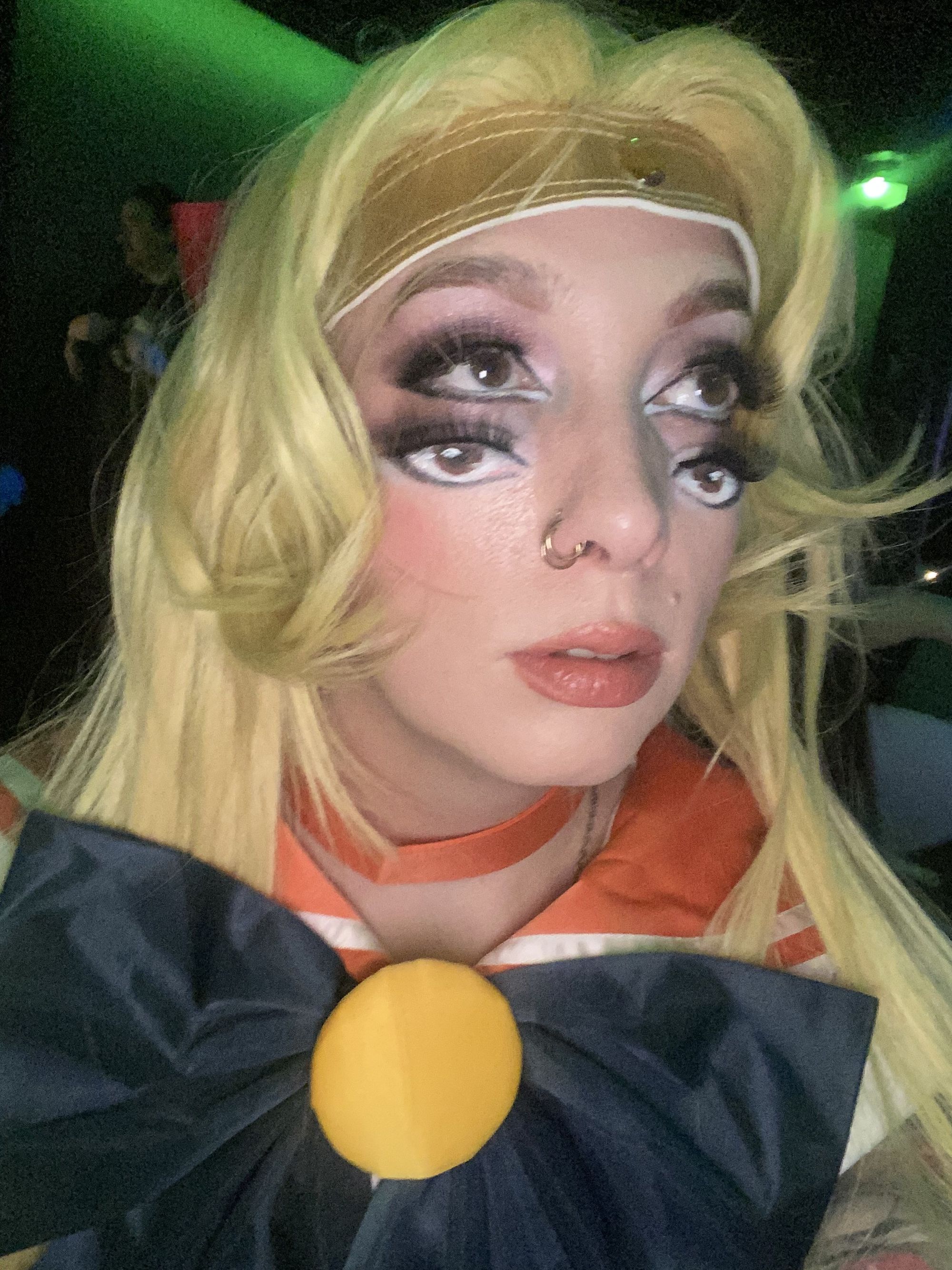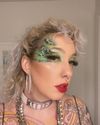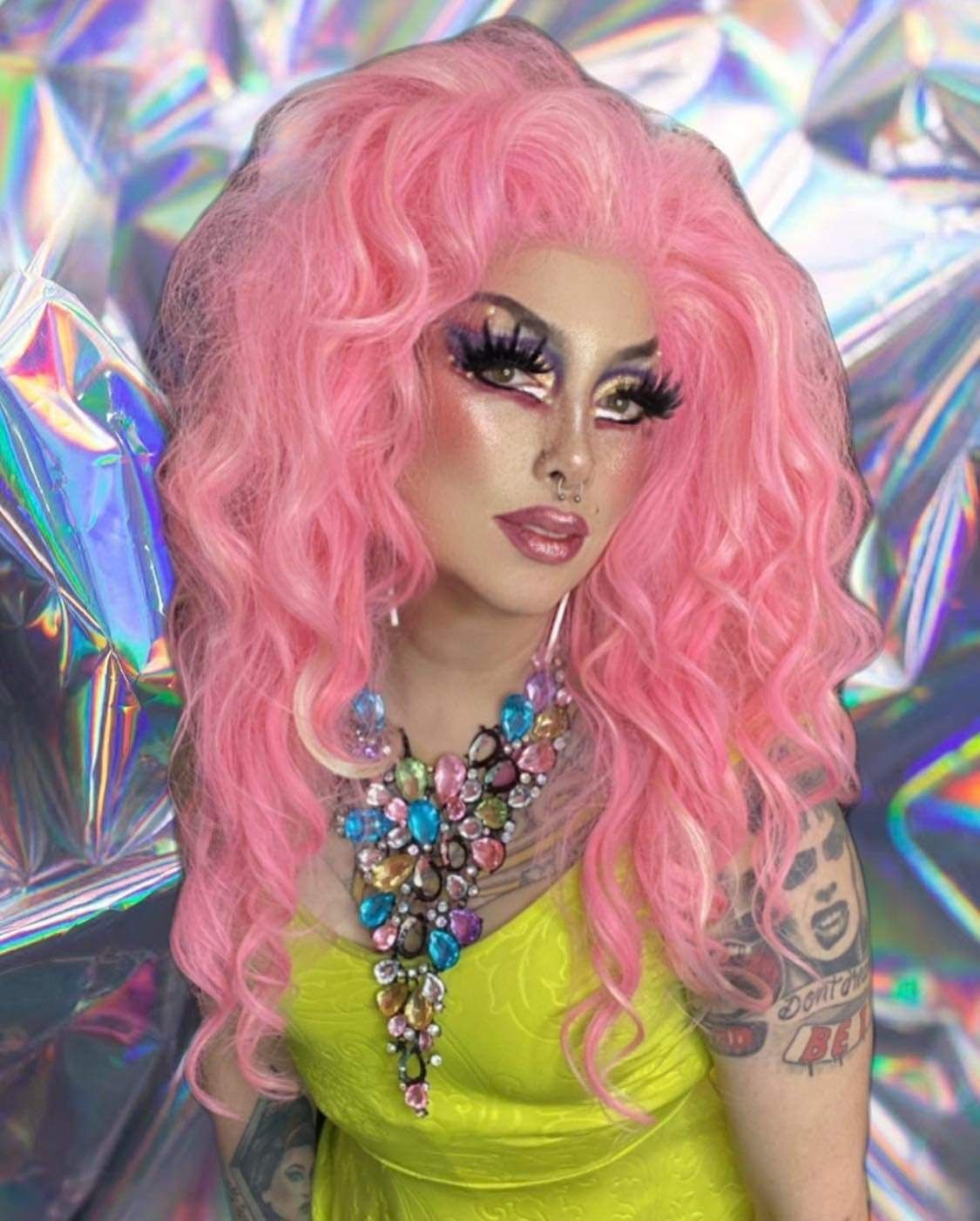Drag shows! You know, in all my years as a drag entertainer I never thought that something so routine to me would be taking the main stage of America’s political circus. Sure, drag can be political; some may argue that Queer culture is inherently political — that living our truth loudly and vibrantly is political by nature. But we’re going to set aside some of those more abstract notions for a bit and get down to the basics.
For those uneducated, I will take a moment to explain what drag is. Some will make the claim that drag started on the stages of Shakespeare’s plays, where male actors played all parts: men, women… and even bears (literally, not like burly hairy men, but… the animals). However, I don’t feel so inclined to give credit to a misogynist society of 1700s Britain. Drag as we know it is just as disconnected from that era as any aspect of our modern lives. (Are you pooping in a bucket and tossing it out the window? No? Just me, huh?)
I digress; the drag that we know today was pioneered in Queer Black circles in New York City in the 1970s, as is anything interesting about American culture.
Drag is Queer art. It is self-expression. It is performance. It is rebellion. It is a battle. It is love. It is truth.
I’m not going to lie to you, dear reader; I fully understand what drag is, yet I struggle to adequately use my big, wrinkly brain to convey it to you with simple words. I wish it were as easy as saying some fabulous, gay, cisgender men put on wigs and lip-sync to Britney Spears, but it’s so much more than that.
Drag has provided a stage to the most ostracized and vulnerable communities in our society — a stage created to express every aspect of the Queer experience: our joy, our love, our pain, and our sorrow.
I think that’s what makes drag so scary to some people. The truth is terrifying to those who wish to divide this country. And let’s be real, babes, drag is truth covered in glitz and glitter. Few things are as terrifying as that.
Drag has taken many great strides since its origins. Drag has become more ‘mainstream’ in recent years: From the balls of New York City, to gay bars across the nation, to movies, reality TV, music, YouTube channels, podcasts, and more. Drag as an artform has truly moved from the dim lights of bars and taverns to the main stage of public entertainment. While we can reference many films and television programs that have utilized crossdressing or drag as plot points (Mulan, Mrs. Doubtfire, Tootsie, To Wong Foo, etc.), there has never been a time in my memory when drag performers (not actors donning drag for a role in a film or show) have been household names, or recognizable figures in entertainment like they are now.
Not only has drag evolved in American culture, it’s also evolving alongside the LGBTQ+ community. Though our community still has leaps and bounds before we reach true equality in this country, things have undeniably changed. People in the community have families of their own. I even know several drag performers who themselves have spouses and children making up their families. More societal acceptance (and let’s be real, internet access) is allowing children of all walks of life to explore their identities and actually have language to describe themselves and their feelings in a way previous generations never had the opportunity to do until well into adulthood.
I recall being a transgender child, myself. I did not know that word. I knew I was different. I knew there was a deep incongruence between who I felt I was and the expectations of the world around me… but I did not have the words to describe it. It was not until adulthood when I actively sought answers for my feelings and hardships that I was able to put together the puzzle that was scattered before me my entire life.

Because of this shift in the community, we find that sharing our history and art with younger generations is in higher demand. LGBTQ+ parents and ally parents have taken an interest in sharing this important part of our culture for many many years now. It is not anything new. In fact, as a drag performer of nine years, I’ve performed in many all-ages drag shows and other LGBTQ+ events during the course of my career.
Drag, like any form of entertainment, can be adjusted to fit the audience in question. Obviously, 21+ shows can feature more adult themes and costumes, but all-ages events are adjusted for the audience. Think of it like movie ratings; perhaps you wouldn’t take your child to a rated R film, but you would take them to a film rated PG or G.
Overall, I don’t feel it’s my (or anyone else’s) business how people raise their children as long as the children in question are cared for, safe, and healthy. Some parents may feel an all-ages drag show is inappropriate for their child, regardless of the content of said show, and that’s a valid position… as is the position that all-ages drag shows are appropriate events to attend with their children. Ultimately, it’s up to the parent, and I support whatever choice they make.
I do not believe for one second that this current outcry against drag from the right is based on anything but ignorance and hate at worst, or a distraction tactic at best. The classic go-to motto “Think of the children!” is pretty weak when the voices attached to it have little interest in the safety of said children. If they were indeed so concerned with the safety of children, then surely they would be screaming and picketing for reform of gun control laws… ya’ know, because currently children and teens are more likely to die from a firearm than they are from car accidents, cancer, or poisoning. Interesting that no one can seem to “think of the children” when there are issues actually killing and harming children right in front of us. Notions that drag performers are actively grooming children by performing in all-ages drag shows are laughable when certain politicians in this country are actively advocating for legalizing child marriages for children as young as 12 years of age.
The weaponization of the misuse of the term ‘grooming’ is another red flag. Grooming is the act of isolating, gaining the trust of, and desensitizing a victim in order to exploit them sexually. Misusing this term is dangerous, because when everyone we don’t agree with is labeled a groomer, then no one is a groomer. The word loses its meaning. It becomes difficult to recognize the patterns of behavior and manipulation that are actually the act of grooming, and people take a very serious accusation… less seriously. If someone is accused of grooming a child, my first thought should be “How terrible, report them to the authorities!”; not “Wait… like they actually exploited a child… or is it just someone that had a different opinion from the accuser?” These are serious terms that have clear definitions; misuse of them is extremely irresponsible and puts real children in danger.
For those of us who may be a bit older and still have clear memories of how politicians and public figures have used terms like this to villainize the LGBTQ+ community in the past, this is an age-old tactic. Not so many years ago, people were in an uproar over same-sex marriages, claiming that allowing them would open the floodgates for childhood sexual abuse, grooming, and exploitation. Conflating a consensual relationship between adults as the same or similar to outright pedophilia is still a tactic of those who wish to harm the LGBTQ+ community, but it’s less successful in fear-mongering than it was even ten years ago. So it seems the new focus to divide the country and distract the masses from legislative movements to reduce our rights as citizens of this nation is to point their accusations at the transgender community, and by extension, drag as a form of entertainment and a cultural artform in our community.
If you have been taken in and believed narratives such as these, I don’t blame you. The world is full of scary things that we don’t understand, and it is easy to hate what we don’t understand. However, it is our responsibility to take the initiative and try to understand that which we don’t, currently. And if you did your research and ultimately decided, “Hey, I still dont think this is something I would take my children to,” that is a-okay with me! Those are your kids, and you can raise them according to your own values. But it’s still not anyone’s place to dictate how parents raise their own children, or to inhibit the free speech of performers and venues that host these events.
The flip side of the coin is that we could easily point out that many children are sexually abused by church leaders. Shall we ban going to church and accuse people who bring their children to Sunday school as being complicit in grooming and child abuse? NO! Because we can recognize that such statements infringe on people’s personal freedoms.
These are difficult topics to navigate, but we, the LGBTQ+ community, are your neighbors. We have as much right to express ourselves and live fully as anyone else — as long as we aren’t harming anyone. And a little glitter and glam never hurt anyone.
Manaja is a drag entertainer and local loudmouth.


